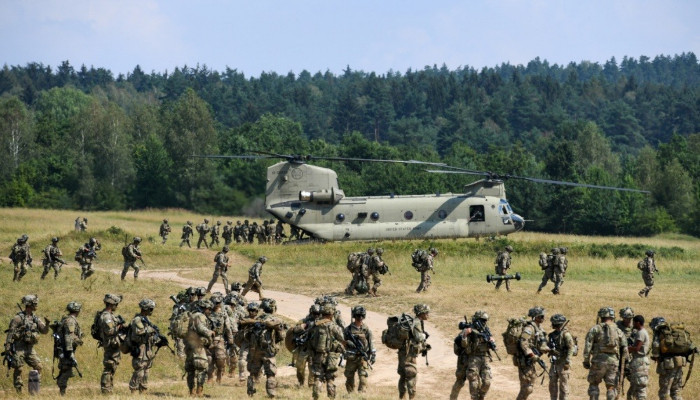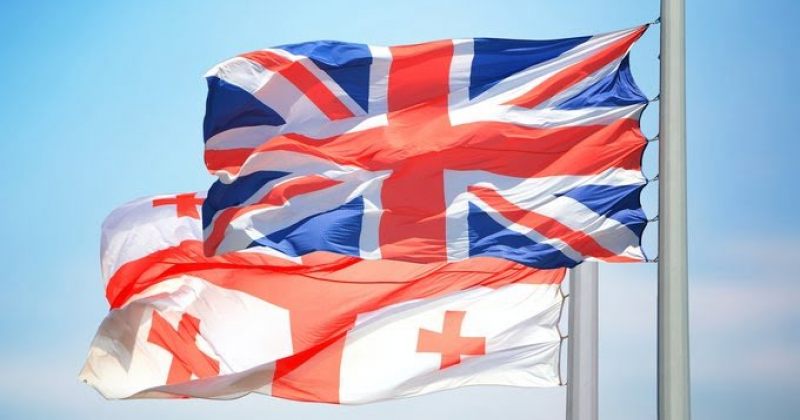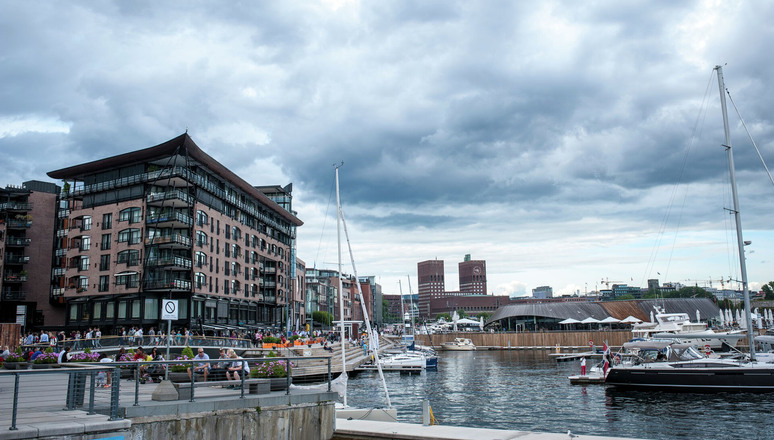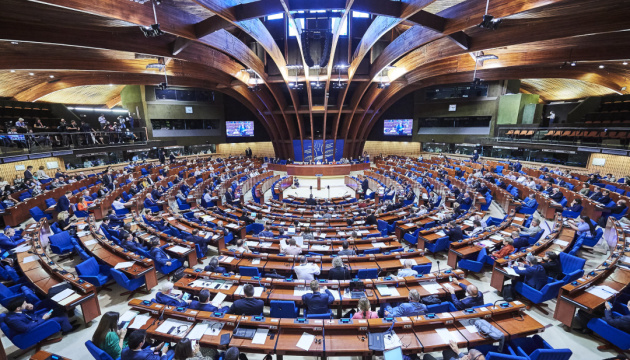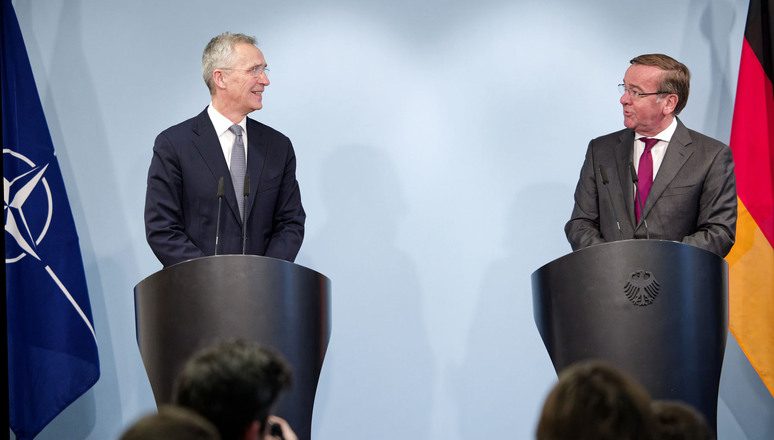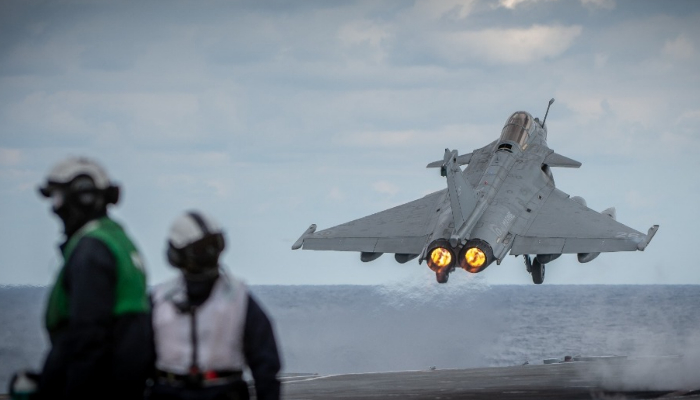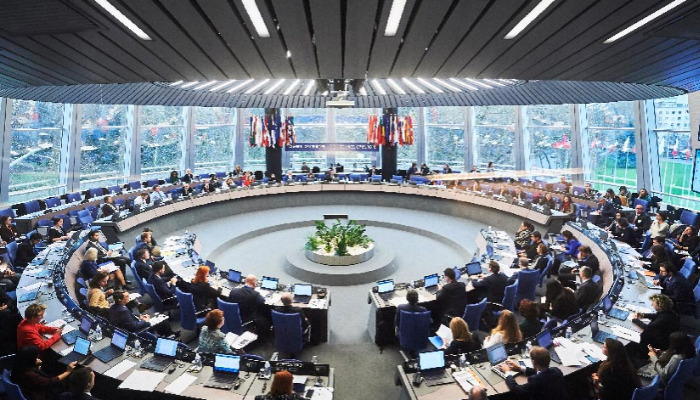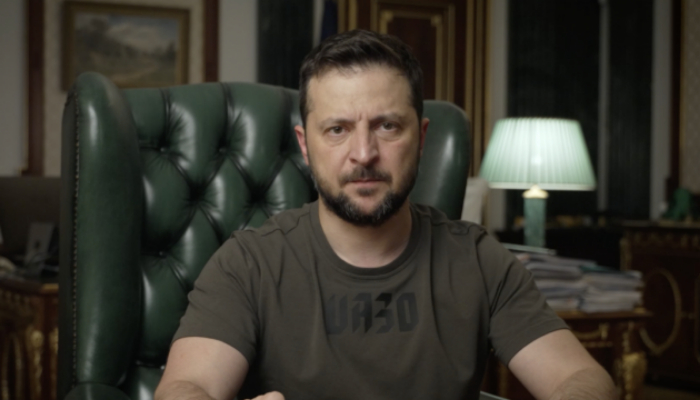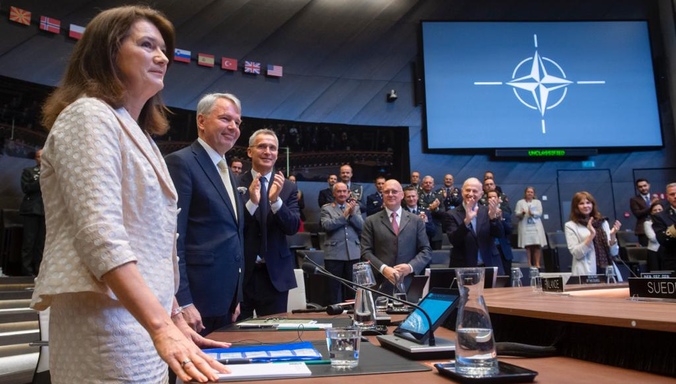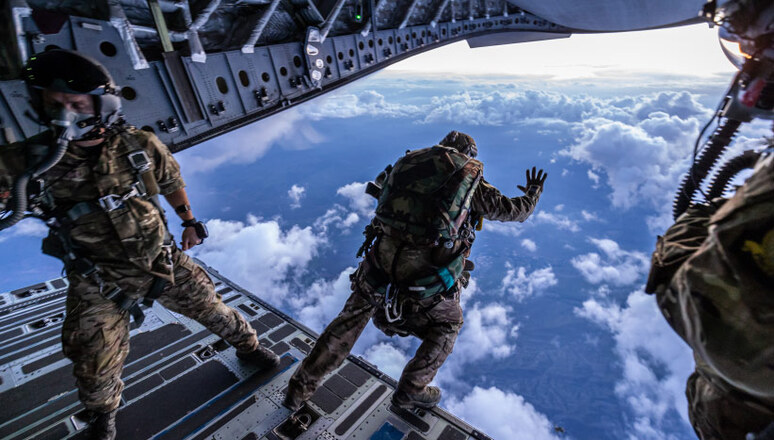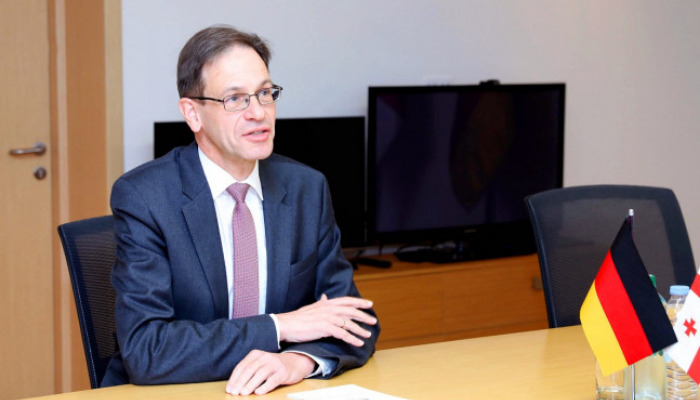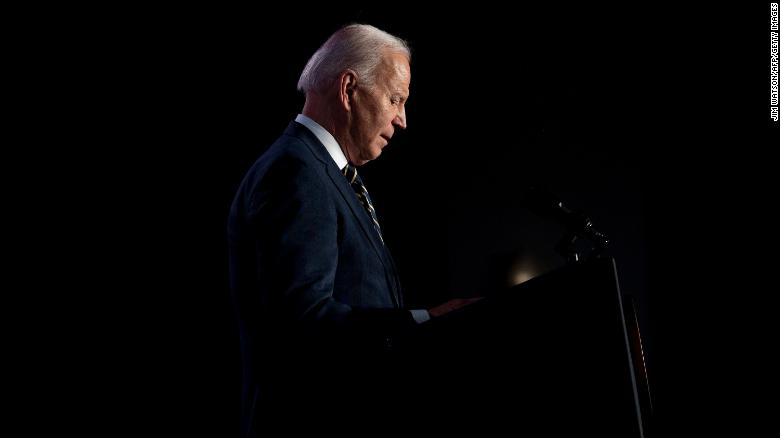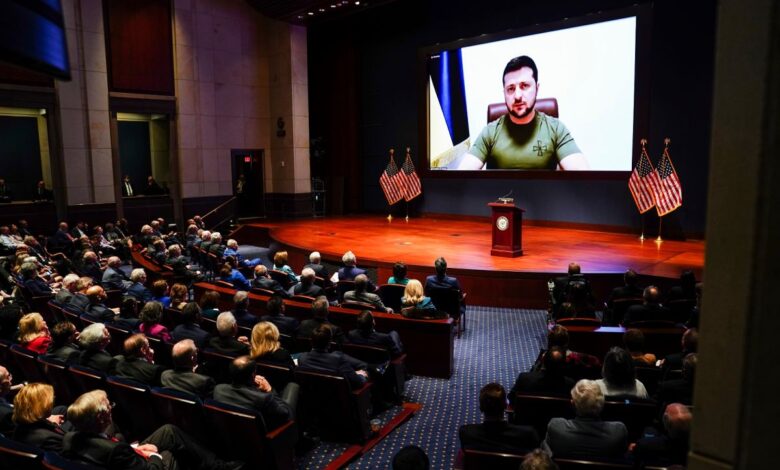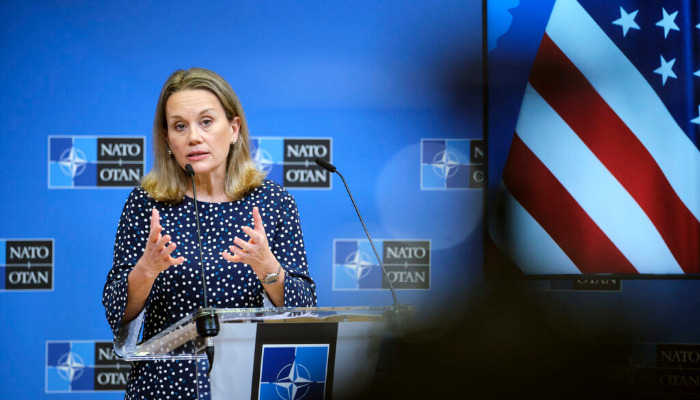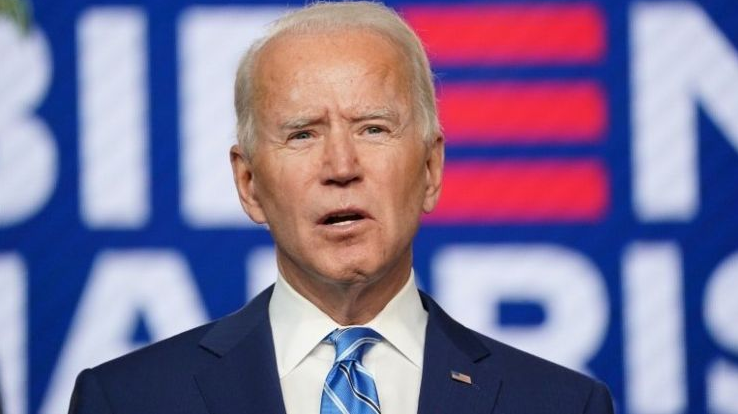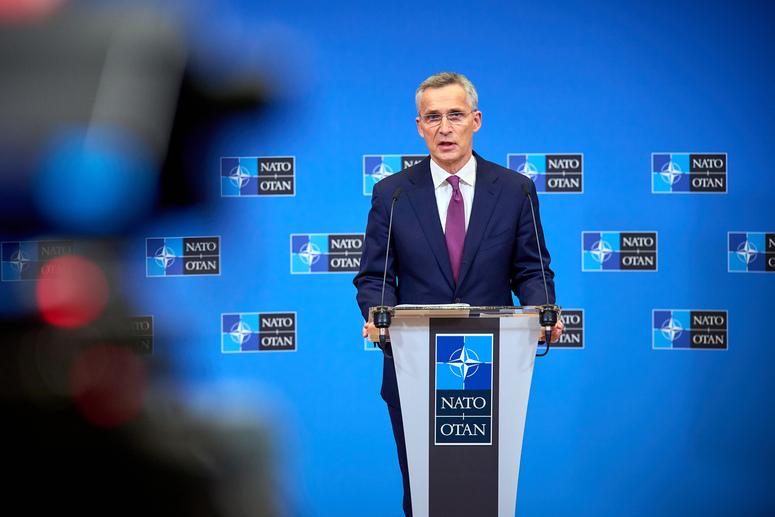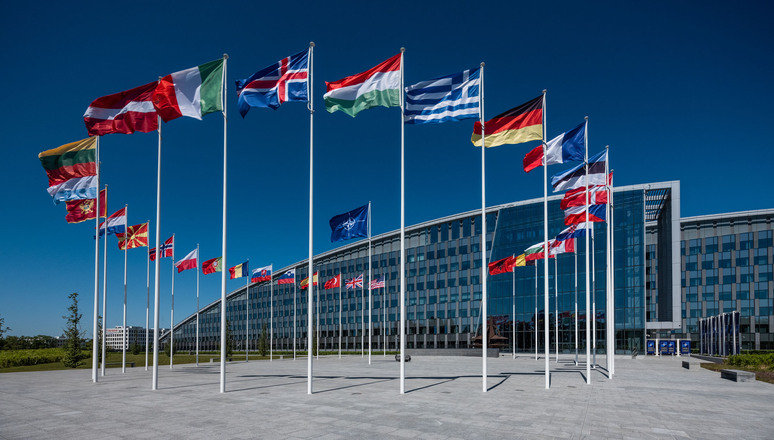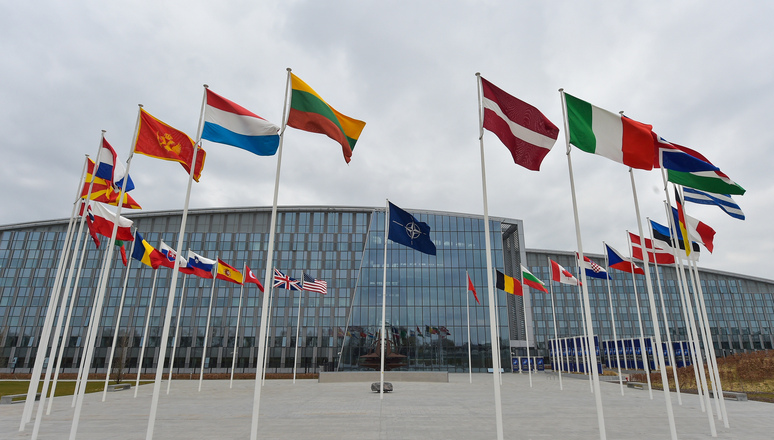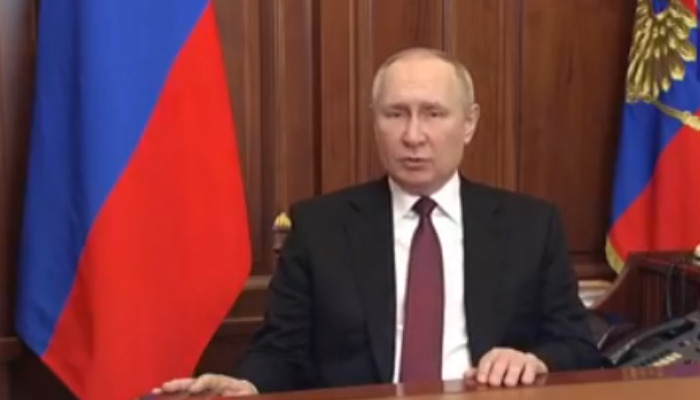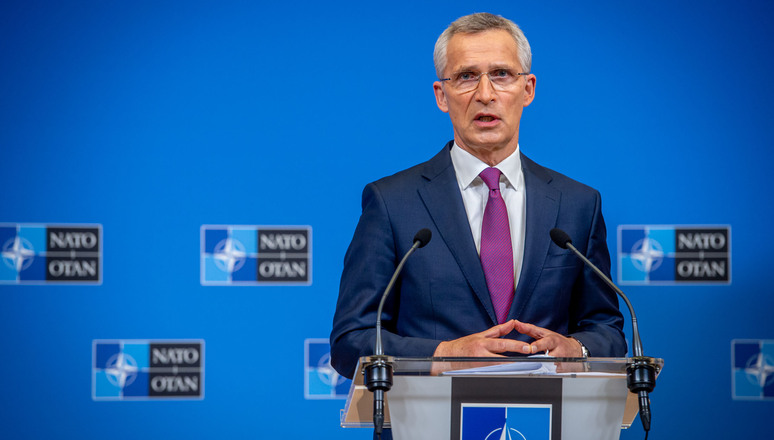World
U.S. Air Force Reserve A-10s coming to Europe, support Army-led DEFENDER 23 exercise
RAMSTEIN AIR BASE, Germany - Activities begin this month across ten European countries and continue through June as part of a U.S. Army-led exercise DEFENDER 2023, which U.S. Air Forces in Europe – Air Forces Africa is supporting in several ways. Ten Air Force Reserve Command A-10C Thunderbolt II attack aircraft assigned to the 442nd Fighter Wing, based at Whiteman Air Force Base, Missouri, are slated to arrive in the USAFE-AFAFRICA area of operations to support DEFENDER 23. The aircraft will be primarily based in Spain and Greece during the exercise. DEFENDER 23 is a USEUCOM-directed multinational joint exercise designed to build readiness and interoperability between U.S. and NATO Allies and partners. DEFENDER 23 consists of three separate but related exercises. Those exercises are Swift Response, Immediate Response and Saber Guardian. Each of these exercises focuses on unique and challenging objectives. As an example, Swift Response tests the exercise participants’ ability to conduct three separate yet simultaneous joint forcible entry airborne operations. Exercise Immediate Response allows the participating nations and individuals to work through the complexities of rapidly building combat power arriving from the U.S. Finally, Exercise Saber Guardian affords participating units unique challenges such as conducting a forward passage of lines, contested wet gap crossings and joint forceable entry operations to seize key terrain objectives. USAFE-AFAFRICA has significant participation in all three exercises. "This annual, nearly two-month long exercise is focused on the strategic deployment of U.S.-based forces, employment of Army pre-positioned stocks and interoperability with European allies and partners," said Sabrina Singh, deputy Pentagon press secretary, during a briefing April 6, 2023, at the Pentagon in Washington, D.C. DEFENDER 23 is led by U.S. Army Europe and Africa and has been planned since 2021. USAFE-AFAFRICA is the supporting command. The exercise is designed to demonstrate the U.S. military's ability to rapidly deploy combat-credible assets and equipment to assure allies, deter those who would threaten the peace of Europe and defend the continent from aggression. The exercise also demonstrates European nations’ commitment to increasing their militaries’ scale, capability and interoperability. DEFENDER 23 will include multinational troops from more than 20 Allied and partner nations. The large-scale movement of troops and equipment from the continental U.S for this exercise involve extensive support from each of the host nations, demonstrating the importance of ally and partner investment in European military readiness and defense. The United States is a coalescing force in Europe improving interoperability and readiness, and strengthening resolve across the Alliance. Air Force Reserve is supporting USAFE-AFAFRICA operations for DEFENDER 23 in various capacities, specifically with A-10C aircraft from its reserve wing at Whiteman AFB. This year, AFR is commemorating 75 years of service, providing combat-proven Airmen at a moment’s notice to address national security priorities worldwide. USAFE-AFAFRICA’s ability to support and integrate with U.S. allies and partners continually strengthens solidarity, collective resolve, and ability to adapt in a dynamic warfighting environment. The A-10 is the U.S. Air Force’s primary low-altitude close air support aircraft and is the first Air Force aircraft designed specifically for close air support to ground forces. These capabilities provide essential support to the joint force land component and afford the U.S. military flexibility in projecting power in highly contested regions.
UK to provide financial support to Georgia and Moldova
The UK will provide financial support to Georgia and Moldova. On a visit to the 2 countries (16 to 17 March), Foreign Secretary James Cleverly will announce an extra £10 million to support economic and governance reforms in Moldova, and new funding to strengthen the security of next year’s elections in Georgia. The press service of the British Government disseminated information regarding the visits to be paid by Foreign Secretary James Cleverly to Moldova and Georgia on March 16-17. "The UK is ramping up its financial support to Moldova and Georgia, as they continue to suffer from the destabilising impact of Putin’s illegal invasion of Ukraine. Cleverly will reiterate that the UK stands with the people of Moldova and Georgia in defending their democratic choice to pursue a path of freedom, independence and sovereignty. In Georgia, Cleverly will see how UK cooperation is helping to counter subversive Russian meddling, including collaboration on defence and cyber security. To help strengthen democracy in Georgia, the UK will also be providing £500,000 aimed at creating an environment for free and fair elections in 2024, protecting them from external interference," reads the statement.
Norway to host informal meeting of NATO foreign ministers in May
As announced last December by Secretary General Jens Stoltenberg, Norway has offered to host the next informal meeting of NATO Ministers of Foreign Affairs. The meeting will take place in Oslo on 31 May-01 June 2023. “I am grateful for Norway’s offer, and I look forward to meeting with NATO foreign ministers in my home city,” the Secretary General said. “This will be an important opportunity for ministers to address the fundamentally changed security situation due to Russia’s brutal war in Ukraine, and our unwavering support for the Ukrainian people so that they can prevail”. Foreign Ministers will hold informal discussions to prepare the meeting of NATO Heads of State and Government to be held in Vilnius, Lithuania on 11-12 July 2023. At their 2021 Summit in Brussels, NATO leaders pledged to strengthen and broaden political consultations, including through informal meetings of Foreign Affairs Ministers. The first such meeting was hosted by Germany in Berlin in May 2022.
PACE recognizes that Russia started war against Ukraine in 2014
The Parliamentary Assembly of the Council of Europe (PACE) has endorsed a resolution, recognizing that the Russian Federation has waged a war of aggression against Ukraine since February 2014. According to Ukrainian media, the relevant resolution, titled 'Conflict-related sexual violence,' was endorsed on Tuesday during the PACE's Winter Session 2023 in Strasbourg. “Since February 2014, the Russian Federation has waged a war of aggression against Ukraine, which it relaunched on 24 February 2022 with a massive invasion of Ukraine,” the document reads. Additionally, the resolution noted that Russian armed aggression “led to mass conflict-related sexual violence committed by the Russian Federation’s armed forces and by affiliated armed groups against the civilian population of Ukraine and Ukrainian prisoners of war”. According to the Ukrainian Prosecutor General’s Office, over 11 months since the Russian invasion started, 155 cases of conflict-related sexual violence have been recorded in Kyiv, Kherson, Kharkiv, Chernihiv, Donetsk, Zaporizhzhia, Luhansk, and Mykolaiv regions. “The officially stated number of cases does not reflect the scale of crimes of the Russian Federation, which are much larger,” the document added. The PACE congratulated Estonia, Germany, Latvia, Lithuania, Norway, Poland, Romania, the Slovak Republic, Spain, Sweden and Switzerland for having initiated universal jurisdiction investigations of war crimes in the context of the Russian war of aggression against Ukraine, or for having declared their intention to do so. The resolution also urged Member States to provide concrete expert and technical support, with the Assembly and the Council of Europe, for the setting up of a special (ad hoc) international tribunal to prosecute the crime of aggression against Ukraine “as conflict-related sexual violence is a result of this crime of aggression”. The voting was 122 in favor and four abstentions.
Secretary General praises Germany’s strong contributions to NATO and support to Ukraine
In a visit to Berlin on Tuesday (24 January 2023) NATO Secretary General Jens Stoltenberg thanked Defence Minister Boris Pistorius for Germany’s significant contributions to NATO and strong support to Ukraine. Stoltenberg praised Germany’s considerable contributions to NATO deterrence and defence at a time when Russia’s war in Ukraine has caused the greatest challenges for our security in generations. He also commended Germany for being among the Allies providing the most military, financial and humanitarian aid to Ukraine, including with air defence systems, armoured vehicles, artillery and ammunition. He made clear that “weapons from Germany are saving lives in Ukraine every day.” The Secretary General stressed that President Putin is planning for new offensives, and there are no indications he has changed his goal of controlling Ukraine, so the only way to lasting peace is to make clear that Russia cannot win on the battlefield. Mr Stoltenberg praised recent announcements from Allied nations to increase their support to Ukraine, including through the delivery of tanks. Stoltenberg said, “at this pivotal moment in the war, we must provide heavier and more advanced systems to Ukraine, and we must do it faster. ” He welcomed the discussion with minister Pistorius on the issue of battle tanks, adding that “consultations among Allies will continue and I am confident that we will have a solution soon.” On Monday (23 January 2023), the Secretary General attended the Welt Economic Summit with German business leaders in Berlin. He discussed the importance of continued support for Ukraine, defence investment, and societal resilience in a more dangerous and competitive world.
NATO Allies test air and missile defences in Romania
French MAMBA Surface-Based Air and Missile Defence system repelled a simulated air attack by Allied fighter aircraft in an exercise, November 23. Deployed in Romania since May 2022, the MAMBA has been augmenting NATO’s Integrated Air and Missile Defence (IAMD) system. Allied fighters including F-16s from Türkiye, Spanish Eurofighters - currently deployed in Bulgaria on a NATO mission -, US E/A 18G Growler electronic warfare aircraft and French Navy Rafale fighters flying from the aircraft carrier Charles De Gaulle participated in the routine test of the system. “In response to Russia’s war against Ukraine, we continue to strengthening our deterrence and defences in the eastern part of the Alliance”, said NATO Spokesperson Oana Lungescu. “This includes significantly increasing our air defences with more fighter jets and surveillance aircraft on patrol, more ground-based air defences and air-defence-capable ships at sea. Exercises such as this one ensure that NATO forces are able to operate together and remain ready to respond to any threat from any direction”. The Surface-to-Air Missile Platform/Terrain (SAMP/T) system - also called MAMBA by the French military - is a theatre anti-missile system designed to protect the battlefield and sensitive sites, such as airports and seaports, against cruise missiles, manned and unmanned aircraft and tactical ballistic missiles. “SBAMD systems like the French MAMBA currently supporting Allied Air Command’s Air Shielding mission in Romania are a key part of the Alliance’s IAMD system. Constant drills and training like this ensure crews are ready to detect and if required respond to air and missile tracks that may threaten their defensive area of operations”, said Brigadier General Christoph Pliet, Deputy Chief of Staff Operations, Allied Air Command. NATO’s Integrated Air and Missile Defence System continuously guards and protects Allied airspace. In addition to French MAMBA system in Romania, Germany has deployed Patriot missiles to Slovakia the US has deployed Patriot missiles to Poland and the Spanish have deployed NASAMS systems to Latvia in response to Russia’s invasion of Ukraine. NATO IAMD is an essential, continuous mission in peacetime, crisis and conflict, safeguarding and protecting the Allies in this context, contributing to the Alliance’s indivisible security and freedom of action.
Council of Europe suspends Russia’s rights of representation
In line with the Statute of the Council of Europe, the Committee of Ministers has today decided to suspend the Russian Federation from its rights of representation in the Committee of Ministers and in the Parliamentary Assembly with immediate effect as a result of the Russian Federation’s armed attack on Ukraine. The decision adopted today means that the Russian Federation remains a member of the Council of Europe and party to the relevant Council of Europe conventions, including the European Convention on Human Rights. The judge elected to the European Court of Human Rights in respect of the Russian Federation also remains a member of the Court, and applications introduced against the Russian Federation will continue to be examined and decided by the Court. Suspension is not a final measure but a temporary one, leaving channels of communication open.
Russian war against Ukraine, Europe starts in Crimea and will end with its liberation - Zelensky
The Russian war against Ukraine and against entire free Europe began with Crimea and must end with Crimea – its liberation. Today it is impossible to say when this will happen. But we are constantly adding the necessary components to the formula for the Crimea liberation. According to Ukrainian media this was stated by President of Ukraine Volodymyr Zelensky in a traditional video message on Tuesday. "Russia has turned our peninsula, which has always been and will always be one of the best places in Europe, into one of the most dangerous places in Europe. Russia brought massive repression, environmental problems, economic stalemate and war to Crimea," he said. According to Zelensky, "historians will someday determine how many people were killed due to Russia's use of Crimea for terror. Tens of thousands? Hundreds of thousands? From Ukraine and Georgia to Syria and beyond." "The presence of Russian occupiers in Crimea is a threat to all of Europe and to global stability. The Black Sea region cannot be safe while Crimea is occupied. There will be no stable and lasting peace in many countries on the Mediterranean coast as long as Russia can use our peninsula as its military base," he said. Zelensky reminded about the Crimea platform, a key diplomatic platform for work on the liberation of Crimea. The Crimea platform will work this year as well. We are already preparing this summit, he said. According to him, "the world is beginning to admit that it was wrong in 2014 when it decided not to give full answers to Russia's first aggressive steps." "Our state is native to peoples whose national cultures and aspirations were formed in Crimea. Therefore, when we work to liberate the peninsula, we are fighting for the restoration of the territorial integrity of our state, and for returning home to the indigenous peoples of Ukraine," the President said. "I believe it will be so. I know that we will return to Ukrainian Crimea. And I am grateful to all our partners and international organizations that help us in this," Zelensky said. According to him, "this year the work of the Crimea Platform will be no less weighty and representative than last year, when its first summit was held in Kyiv. The format will be different, but the meaning will be even greater."
NATO Allies sign Accession Protocols for Finland and Sweden
NATO Ambassadors signed the Accession Protocols for Finland and Sweden at NATO Headquarters on Tuesday (5 July 2022), in the presence of Finnish Foreign Minister Pekka Haavisto and Swedish Foreign Minister Ann Linde. NATO Secretary General Jens Stoltenberg said: “This is truly an historic moment. For Finland, for Sweden, for NATO, and for our shared security.” Last week at the Madrid Summit, Allied leaders agreed to invite Finland and Sweden to join NATO following the agreement of a trilateral memorandum between Türkiye, Finland, and Sweden. Today, the Accession Protocols were signed, marking the start of the ratification process. The Secretary General said that NATO’s door remains open to European democracies who are ready and willing to contribute to our shared security: “With 32 nations around the table, we will be even stronger and our people will be even safer, as we face the biggest security crisis in decades.”
Long-planned NATO exercises across Europe get underway
Troops from NATO Allies and partners are taking part in a series of long-planned military exercises stretching from the High North to the Balkans to enhance the readiness and interoperability of NATO forces. Troops from NATO Allies and partners are taking part in a series of long-planned military exercises stretching from the High North to the Balkans to enhance the readiness and interoperability of NATO forces. Two of the biggest drills, with around 18,000 troops from twenty countries, are “Defender Europe” and “Swift Response”. Currently taking place in Poland and eight other countries, they also include parachute drops and helicopter assaults in North Macedonia. In Estonia, 15,000 troops from 14 countries are involved in exercise “Hedgehog”, one of the largest military drills in the country since 1991 and involving the US navy Wasp-class landing ship Kearsarge. Meanwhile, exercise “Iron Wolf” in Lithuania involves 3,000 Allied troops and around 1,000 vehicles, including German Leopard 2 tanks. NATO Spokesperson Oana Lungescu said, “exercises like these show that NATO stands strong and ready to protect our nations and defend against any threat.” She stressed that “these are regular exercises, planned well before Russia’s brutal and unjustified invasion of Ukraine, but they help to remove any room for miscalculation or misunderstanding about our resolve to protect and defend every inch of Allied territory. NATO exercises are defensive, transparent, and in line with our international commitments.” In Germany, 7,500 troops are involved in “Wettiner Heide”, a NATO Response Force exercise. In the Mediterranean, the USS Harry S. Truman Carrier Strike Group will be placed under NATO command for the second time this year during the “Neptune series” of naval drills. This marks only the second transfer of a U.S. carrier group to NATO since the end of the Cold War. Next month’s “Ramstein Legacy” in Poland and the Baltic countries will be Europe’s largest integrated air and missile defence exercise and involve 23 countries. “Baltops”, also in June, has been held annually for over 50 years and will see amphibious training across the Baltic region. NATO partners Finland and Sweden will be involved in several Allied exercises over the coming weeks. Currently, U.S., British, Estonian and Latvian forces are participating alongside their Finnish hosts in exercise “Arrow 22”, and involving UK Challenger 2 tanks and US Stryker armoured fighting vehicles.
German Ambassador's remarks on the Bundestag's Resolution
High standards of democracy and the rule of law, a sufficient level of socio-economic development, and the ability to implement EU law are the things that enable a country to be a successful member of the EU. German Ambassador to Georgia Hubert Knirsch told Europetime about it. „The Bundestag resolution is about support to Ukraine in its fight for freedom and territorial integrity, which is also a fight for the peaceful order in Europe. The German Parlament expresses its option that our assistance should include support for Ukraine's aspiration to EU membership. The Bundestag also underlines that this applies equally to Georgia and Moldova. At the same time, it points to the criteria for membership as defined in the European Union treaty: high standards of democracy and the rule of law, a sufficient level of socio-economic development, ability to implement EU law. These are the things that enable a country to be a successful member of the European Union“, - Ambassador Hubert Knirsch said. A reminder, The German Bundestag supports Ukraine, Moldova and Georgia "on their European path". The resolution was submitted jointly by the three parliamentary groups of the ruling coalition and the largest opposition group, the CDU / CSU.
U.S. to send hundreds more anti-aircraft systems to Ukraine
President Joe Biden announced an additional $800 million in security assistance to Ukraine on Wednesday, even as his position on a no-fly zone did not change after Ukrainian President Volodymyr Zelenskiy's urgent appeal to the U.S. Congress for military help to fend off a Russian invasion. According to Reuters, Addressing Zelenskiy's remarks in his speech, Biden said the United States has offered Ukraine $1 billion in security aid, adding America will continue to give Ukraine weapons to fight and defend themselves, offer humanitarian relief and support Ukraine's economy with additional financial assistance. „This new package on its own is going to provide unprecedented assistance to Ukraine, and includes 800 anti-aircraft systems," Biden said, to stop Russian planes and helicopters attacking Ukrainians. At Zelenskiy's request, Washington will help Ukraine acquire additional long-range missile anti-aircraft systems, Biden said. It will also supply 9,000 anti-armor systems, drones and 7,000 small arms such as machine guns, shotguns and grenade launchers that will help civilians fighting to defend their country. "More will be coming as we source additional stocks of equipment that ... we are ready to transfer," he said. The new funds will come from a spending bill Biden signed into law that includes $13.6 billion in new aid to Ukraine.
Zelensky calls on US to remember Pearl Harbor and 9/11: ‘Our country experiences the same every day’
In his address to Congress, Zelenskiy compared the attacks in Ukraine to the Japanese attack on Pearl Harbor that pulled the United States into World War Two, and begged lawmakers, and Biden directly, for more help. "This is a terror that Europe has not seen for 80 years, and we are asking for our life, for an answer to this terror from the whole world. Is this a lot to ask for? To create a no-fly zone over Ukraine to save people?" Zelenskiy asked through an interpreter. "If this is too much to ask, we offer an alternative," he said. "You know what kind of defense systems we need," adding that he knows the United States has them. Acoording to Reuters, Biden has referred to the creation of a no-fly zone over Ukraine as "World War Three," and the Pentagon has refused requests to send fighter jets to Ukraine. Earlier on Wednesday, Russia and Ukraine both emphasized newfound scope for compromise as peace talks were set to resume three weeks into a Russian assault that has so far failed to topple the Ukrainian government. On Tuesday, the White House said Biden will travel to Brussels for a March 24 NATO summit on Russia's invasion of Ukraine, which Moscow terms a "special military operation" to disarm and "denazify" its neighbor. Biden has ratcheted up sanctions imposed on Russia in recent days. He has called for a suspension of Russia's trading status that affords its exported products lower tariffs in the international arena and announced a ban on Russian oil and other energy imports.
A no-fly zone is not on the table right now, Ambassador Julianne Smith says
The message coming from the NATO alliance and from Washington, including the president, is that a no-fly zone is not on the table right now. According to Ambassador Julianne Smith, US permanent representative to NATO that’s not something that the Alliance is looking at. „I think our collective goal, the United States in consultation with its Allies, our goal right now is to end this war – to get Russia to leave Ukraine, to get Russia to stop these attacks on both the Ukrainian military and these indiscriminate attacks on civilians. We don’t want to expand this conflict. We do not want to see it spread above and beyond the current context. And so the feeling is that if we were to consider something like a no-fly zone, that would take us in the wrong direction. There is also a broader question here about the utility of considering that type of option. If you take, for example, the recent attack that we saw by the Russians on this military training facility in western Ukraine that was about – my understanding is it’s about 15 kilometers from the Polish border – what we learned from that was that Russia actually was able to instigate that attack from a Russian bomber in Russian airspace, begging the question about whether or not a no-fly zone in Ukrainian airspace would actually have a major impact on Russia’s ability to attack Ukrainian territory. So that’s a broader set of questions. But again, I think when you think about the Alliance’s position on escalation and our interest in not escalating this conflict right now, where the Alliance has landed is to take that option off the table. On the jets, I mean, what I can say broadly is, look, every member of this Alliance right now is trying to think about what more it can do. The remarkable story of the last couple of weeks, first and foremost, is that every member of this Alliance, every single one has already stepped forward and offered assistance. That assistance takes many forms. Several Allies are offering lethal assistance; some are offering humanitarian; most of them are offering both. In the case of Poland, they obviously had some requests through their contacts in Kyiv. They heard loud and clear the request for these Soviet-era MiGs that they have in Poland. We had a debate about that particular option. At the end of the day, you heard the U.S. weigh in and say that they felt that this particular option was untenable. There were a number of – and there still are – open-ended questions about the mechanics of actually moving these planes from Poland to Ukraine. There are open-ended questions about pilots, about fuel, about missiles. And so, at this point, this is ultimately Poland’s decision, but to the extent that the U.S. has a view on this. Again, you’ve heard directly from the Pentagon on this matter that folks did not believe that at this point, this was the best option, and this was an option that had all of the details adequately sorted to actually make this transfer happen. So, that’s on that front. On your last bit about air defense, look, the U.S. has already provided – really since the President came to the Oval Office in early 2021 – $1.2 billion worth of security assistance to Ukraine. Just in the last two weeks, we have provided $550 million in security assistance, and that mostly takes the form of anti-armor or anti-tank weapons. You’ve heard the President and the Secretary of Defense talk about the fact that we are continually assessing what additional needs our friends in Kyiv have. We will continue looking at what other aspects of or other forms of air defense we might be able to provide to Ukraine. And of course, you’ve no doubt seen the news that Congress just recently approved an additional $13.6 billion of support for Ukraine. So, this is an evolving story. It’s hard to take a snapshot on any given day because it’s clear that not only the United States but NATO Allies are continuing to look for additional ways that they can address Ukraine’s air-defense needs“, - Ambassador Julianne Smith says.
US bans Russian oil imports over Ukraine invasion: Biden
President Biden on Tuesday announced a U.S. ban on Russian oil and gas imports over the country's invasion of Ukraine, taking aim at Russian President Vladimir Putin's main revenue source as Russian forces continue battering Ukrainian cities. "Today, I am announcing the United States is targeting the main artery of Russia's economy," the president said. "We're banning all imports of Russian oil and gas energy. That means Russian oil will no longer be accepted in U.S. ports, and the American people will deal another powerful blow to Putin's war machine."
NATO Foreign Ministers meet amidst escalating Russian aggression in Ukraine
NATO Foreign Ministers held an extraordinary meeting in Brussels today (4 March 2022) to address the escalating crisis in Ukraine. They were joined by the Foreign Ministers of Finland and Sweden and the European Union High Representative. Ukrainian Foreign Minister Dmytro Kuleba addressed his counterparts in a video message, in which he described the deteriorating humanitarian situation in his country. Ministers condemned Russia’s brutal and unprovoked invasion of Ukraine and expressed solidarity and support for the courage of the Ukrainian people and armed forces. They addressed NATO’s immediate response to the crisis. In addition to the thousands more troops that Allies have already sent to the eastern part of the Alliance, NATO is deploying its Response Force for the first time, it has over 130 jets at high alert and over 200 ships from the High North to the Mediterranean. “We will continue to do what it takes to protect and defend every inch of NATO territory”, said Secretary General Stoltenberg. Foreign Ministers also discussed the need to support partners who may be at risk of the war in Ukraine spilling-over, including Georgia and Bosnia and Herzegovina. “We are not part of this conflict”, said Mr. Stoltenberg, adding, however, that NATO has “a responsibility to ensure it does not escalate and spread beyond Ukraine. That would be even more devastating and dangerous.” The meeting was an opportunity for ministers to also address the longer-term implications of Russia’s aggression for Euro-Atlantic security. The Secretary General reiterated that “Russia’s aggression has created a new normal for our security, where fundamental principles are contested through the use of force”. In this new normal, ministers agreed that NATO’s relationship with Russia has fundamentally changed for the long term, but they remain committed to keeping diplomatic channels open to avoid any unintended escalation, misunderstanding or miscalculation. In the afternoon of 4 March 2022, Mr. Jens Stoltenberg participated in the extraordinary meeting of the Foreign Affairs Council of the European Union. This meeting was an opportunity for the Secretary General to hold an informal exchange with EU Foreign Affairs Ministers on the conflict in Ukraine and brief them on the discussions that the NATO ministers had earlier that same day. NATO and the EU are united in strongly condemning Russian aggression against Ukraine.
NATO Allies boost support to Ukraine
NATO Allies are boosting their political and practical support to Ukraine as it continues to defend itself against Russia’s full-scale invasion. Thousands of anti-tank weapons, hundreds of air-defence missiles and thousands of small arms and ammunition stocks are being sent to Ukraine. Allies are also providing millions of euros worth of financial assistance and humanitarian aid, including medical supplies to help Ukrainian forces. Belgium, Canada, the Czech Republic, Estonia, France, Germany, Greece, Latvia, Lithuania, the Netherlands, Portugal, Romania, Slovakia, Slovenia, the United Kingdom and the United States have already sent or are approving significant deliveries of military equipment to Ukraine. Ukraine has already received critical weapons, including Javelin missiles and anti-aircraft missiles, from NATO Allies, as well as millions of euros of financial assistance. Albania, Bulgaria, Croatia, Denmark, Hungary, Iceland, North Macedonia, Norway, Poland, Portugal, Romania, Slovakia, Slovenia, Spain, the United Kingdom and the United States are offering humanitarian aid or opening their borders to Ukrainian refugees. Croatia, Poland and Romania are already welcoming Ukrainian refugees. Italy is also providing immediate financial assistance to the Ukrainian government, and Turkey has deepened its defence ties with Ukraine and offered humanitarian aid. NATO Secretary General Jens Stoltenberg said: “I welcome that Allies are stepping up to support Ukraine, with additional military equipment, financial assistance and humanitarian aid. Self-defence is a right enshrined in the UN Charter, and Allies are helping Ukraine uphold that right. This sends a clear message of NATO’s full support for Ukraine’s sovereignty and territorial integrity.” These additional contributions build on many years of NATO assistance to Ukraine. NATO has helped to train, fund and reform Ukraine’s armed forces and defence institutions since 2014. In the current crisis, the Alliance is helping to coordinate Ukraine’s requests for assistance and is supporting Allies in the delivery of humanitarian and non-lethal aid.
The North Atlantic Council condemns Russia’s horrifying attack on Ukraine
The North Atlantic Council condemns Russia’s horrifying attack on Ukraine. According to the statement this renewed attack is a grave violation of international law, including the UN Charter, and is wholly contradictory to Russia’s commitments in the Helsinki Final Act, the Charter of Paris, the Budapest Memorandum and the NATO-Russia Founding Act. It constitutes an act of aggression against an independent peaceful country. We condemn in the strongest possible terms Russia’s horrifying attack on Ukraine, which is entirely unjustified and unprovoked. Our thoughts are with all those killed and injured, and with the people of Ukraine. We also condemn Belarus for enabling this attack. We stand with the people of Ukraine and its legitimate, democratically elected president, parliament and government. We will always maintain our full support for the territorial integrity and sovereignty of Ukraine within its internationally recognised borders, including its territorial waters. We call on Russia to immediately cease its military action and withdraw all its forces from in and around Ukraine, to fully respect international humanitarian law, and to allow safe and unhindered humanitarian access and assistance to all persons in need. We strongly condemn Russia’s decision to extend recognition to the separatist regions of eastern Ukraine. This further violates Ukraine’s sovereignty and territorial integrity, and contravenes the Minsk agreements, to which Russia is a signatory. Allies will never accept this illegal recognition. We urge Russia in the strongest terms to turn back from the path of violence and aggression it has chosen. Russia’s leaders must bear full responsibility for the consequences of their actions. Russia will pay a very heavy economic and political price. NATO will continue to coordinate closely with relevant stakeholders and other international organisations including the EU. Throughout this crisis, NATO, the Allies, and our partners have made every effort to pursue diplomacy and dialogue with Russia, including at the highest levels, and made many substantive proposals to enhance the security of all nations in the Euro-Atlantic region. We have repeatedly invited Russia to talks in the NATO-Russia Council. Russia has still not reciprocated. It is Russia, and Russia alone, which has chosen escalation. Russia’s actions pose a serious threat to Euro-Atlantic security, and they will have geostrategic consequences. NATO will continue to take all necessary measures to ensure the security and defence of all Allies. We are deploying additional defensive land and air forces to the eastern part of the Alliance, as well as additional maritime assets. We have increased the readiness of our forces to respond to all contingencies. Today, we have held consultations under Article 4 of the Washington Treaty. We have decided, in line with our defensive planning to protect all Allies, to take additional steps to further strengthen deterrence and defence across the Alliance. Our measures are and remain preventive, proportionate and non-escalatory. Our commitment to Article 5 of the Washington Treaty is iron-clad. We stand united to defend each other.
Putin announces military operation in Ukraine
Putin announces 'military operation' in Donbas. Russian President Vladimir Putin has just announced a "military operation" in Ukraine's Donbas region. He made the declaration in a televised speech at the same time as the UN Security Council was imploring him to stop. In a televised address on Thursday morning, Putin urges Ukrainian soldiers in the combat zone in eastern Ukraine to lay down weapons and return to their homes. He warned Ukraine that it would be blamed for any bloodshed. Putin also says "justice and truth" are on the Russian side, warning that Moscow's response will be "instant" if anyone tries to take on Russia. The Russian president also says his country's actions are self-defence and tells Ukraine’s military their fathers and grandfathers did not fight so they could help neo-Nazis. According to BBC Putin adds that clashes between Ukrainian and Russian forces are “inevitable” and “only a question of time”. Only minutes earlier, the UN's under secretary had warned that a military escalation would lead to "an unacceptably high cost, human suffering and destruction".
Secretary-General: We stand with the people of Ukraine at this terrible time. NATO will do all it takes to protect and defend all Allies
Secretary-General strongly condemns Russia’s reckless and unprovoked attack on Ukraine, which puts at risk countless civilian lives. Once again, despite our repeated warnings and tireless efforts to engage in diplomacy, Russia has chosen the path of aggression against a sovereign and independent country. This is a grave breach of international law, and a serious threat to Euro-Atlantic security. I call on Russia to cease its military action immediately and respect Ukraine’s sovereignty and territorial integrity. NATO Allies will meet to address the consequences of Russia’s aggressive actions. We stand with the people of Ukraine at this terrible time. NATO will do all it takes to protect and defend all Allies, - Iens Stoltenberg said.


